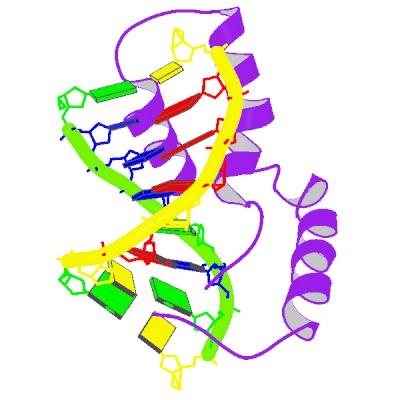XY gonadal dysgenesis
(Redirected from XY gonadal agenesis syndrome)
Editor-In-Chief: Prab R Tumpati, MD
Obesity, Sleep & Internal medicine
Founder, WikiMD Wellnesspedia &
W8MD medical weight loss NYC and sleep center NYC
| XY gonadal dysgenesis | |
|---|---|

| |
| Synonyms | Swyer syndrome |
| Pronounce | N/A |
| Specialty | N/A |
| Symptoms | Streak gonads, amenorrhea, lack of secondary sexual characteristics |
| Complications | Infertility, increased risk of gonadal tumors |
| Onset | Congenital |
| Duration | Lifelong |
| Types | N/A |
| Causes | Mutations in the SRY gene, other genetic mutations |
| Risks | Family history, genetic factors |
| Diagnosis | Karyotype analysis, genetic testing |
| Differential diagnosis | Androgen insensitivity syndrome, Turner syndrome |
| Prevention | N/A |
| Treatment | Hormone replacement therapy, surgical removal of gonads |
| Medication | N/A |
| Prognosis | Good with treatment, but requires lifelong management |
| Frequency | Rare |
| Deaths | N/A |
XY gonadal dysgenesis, also known as Swyer syndrome, is a type of disorder of sex development (DSD) characterized by the presence of a 46,XY karyotype in an individual with female external genitalia and non-functional gonads. This condition is a form of gonadal dysgenesis, where the gonads are present as "streak gonads" rather than functional ovaries or testes.
Pathophysiology[edit | edit source]
XY gonadal dysgenesis occurs due to mutations or deletions in genes involved in the development of the testes. The most common gene implicated is the SRY (Sex-determining Region Y) gene, which is located on the Y chromosome. The SRY gene is responsible for initiating the development of the testes from the bipotential gonad. In individuals with XY gonadal dysgenesis, the SRY gene may be absent or non-functional, leading to the failure of testicular development. As a result, the Müllerian ducts do not regress, and the individual develops female internal genitalia, such as a uterus and fallopian tubes.
Clinical Presentation[edit | edit source]
Individuals with XY gonadal dysgenesis typically present with primary amenorrhea and lack of secondary sexual characteristics during adolescence. They have a female phenotype with normal female external genitalia but lack functional gonads, leading to infertility.
Diagnosis[edit | edit source]
Diagnosis of XY gonadal dysgenesis is based on clinical evaluation, hormonal assays, and karyotyping. A 46,XY karyotype in an individual with female external genitalia and streak gonads confirms the diagnosis. Hormonal tests typically show low levels of estrogen and elevated levels of gonadotropins due to the lack of functional gonads.
Management[edit | edit source]
Management of XY gonadal dysgenesis involves hormone replacement therapy to induce the development of secondary sexual characteristics and maintain bone health. Surgical removal of streak gonads is recommended to prevent the risk of gonadoblastoma, a type of tumor that can develop in dysgenetic gonads.
See also[edit | edit source]
Search WikiMD
Ad.Tired of being Overweight? Try W8MD's physician weight loss program.
Semaglutide (Ozempic / Wegovy and Tirzepatide (Mounjaro / Zepbound) available.
Advertise on WikiMD
|
WikiMD's Wellness Encyclopedia |
| Let Food Be Thy Medicine Medicine Thy Food - Hippocrates |
Translate this page: - East Asian
中文,
日本,
한국어,
South Asian
हिन्दी,
தமிழ்,
తెలుగు,
Urdu,
ಕನ್ನಡ,
Southeast Asian
Indonesian,
Vietnamese,
Thai,
မြန်မာဘာသာ,
বাংলা
European
español,
Deutsch,
français,
Greek,
português do Brasil,
polski,
română,
русский,
Nederlands,
norsk,
svenska,
suomi,
Italian
Middle Eastern & African
عربى,
Turkish,
Persian,
Hebrew,
Afrikaans,
isiZulu,
Kiswahili,
Other
Bulgarian,
Hungarian,
Czech,
Swedish,
മലയാളം,
मराठी,
ਪੰਜਾਬੀ,
ગુજરાતી,
Portuguese,
Ukrainian
Medical Disclaimer: WikiMD is not a substitute for professional medical advice. The information on WikiMD is provided as an information resource only, may be incorrect, outdated or misleading, and is not to be used or relied on for any diagnostic or treatment purposes. Please consult your health care provider before making any healthcare decisions or for guidance about a specific medical condition. WikiMD expressly disclaims responsibility, and shall have no liability, for any damages, loss, injury, or liability whatsoever suffered as a result of your reliance on the information contained in this site. By visiting this site you agree to the foregoing terms and conditions, which may from time to time be changed or supplemented by WikiMD. If you do not agree to the foregoing terms and conditions, you should not enter or use this site. See full disclaimer.
Credits:Most images are courtesy of Wikimedia commons, and templates, categories Wikipedia, licensed under CC BY SA or similar.
Contributors: Kondreddy Naveen, Prab R. Tumpati, MD

